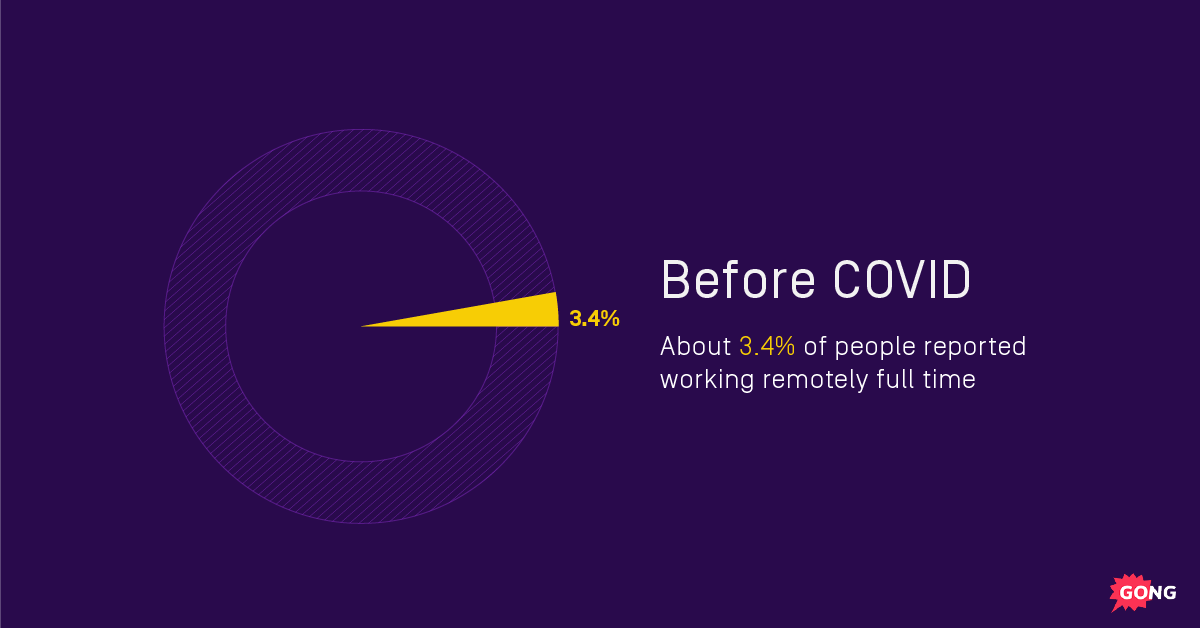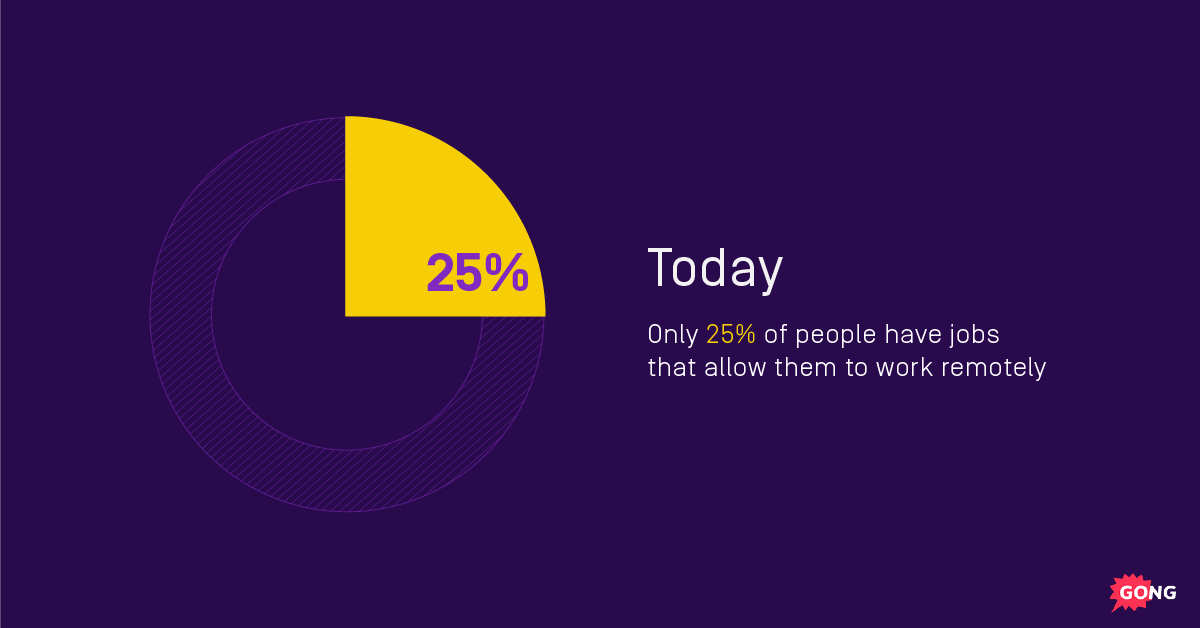Jane Kim: Empowerment is Vital for Effective Leadership
What’s the fundamental role of a sales leader?
What should you look for in a sales hire?
How can you best manage your teams through uncertain times?
On a recent episode of the Reveal podcast, we connected with Jane Kim, CRO of CircleCI, for answers to these and other questions that are top of mind for revenue leaders.
Key Points to Remember
- Your job is to make the best decisions you can—even if there’s no data available.
- Set clear boundaries in your work relationships.
- The best salespeople are advocates for your customers.
- Adapting to a WFH culture in this time of crisis starts with prioritizing your team’s health and personal needs.
- When facing uncertainty, staying in place is not a viable option.
The Leadership Role
My job fundamentally is to make decisions, and that can be really hard when you don’t have perfect information. As much as I want to be able to make great data-driven decisions, sometimes you have to—even when the data isn’t clear or not really available.
I’m also a big believer in empowerment…figuring out the points of leverage and how I can empower my teams to be the eyes and the ears that I can’t be.
It’s really the ability to listen. You don’t know what you don’t know. And sometimes the easiest thing to do is just make assumptions. Somebody is asking for something and you want to be able to help them. You want to be able to get them those answers.
Being humble and honest with yourself about the things you don’t know can sometimes be even more important. Being open, being compassionate, and being empathetic can really help you and your ability to listen.
Empowerment and Accountability
One thing that I look for in hiring is that entrepreneurial spirit. To give something to somebody and ask them to really own it. They’re willing to stand up and say, “I got this.” Or, “I’m really gonna take this on and make this my own.”
That’s something that I really foster. And I think it can be actually a huge motivator. But in order to make that relationship work, I can’t just empower somebody and give something to someone unless they’re really set up for that success.
And so it’s also my job to ensure that every person on my team, if I’m going to really empower them and hold them accountable, that I’m able to ensure that they have all the support, the resources, the coaching in order to be successful.
So, I’m constantly asking people if they have what they need. It’s also important for me too, because knowing what’s not working quickly is incredibly important so that we can get to fixing that problem and get on the right path as soon as possible.
I think those strong relationships are really built on trust and that joint understanding.
If I empower my teams, then I’m going to hold them accountable. I’m also going to support them and unblock them as much as possible.
Friendship vs Business
I had a rep once who actually became very upset when hearing some direct feedback from me. Their response was, “I thought you were my friend.” Which was a real heartbreaker, honestly. It was definitely tough.
And with as much compassion as I could, I had to explain to this person that I was their VP and not their friend. Don’t get me wrong—it absolutely did not mean that I didn’t care for them, believe in their success, and would do everything in my power to help them improve. But I think being really clear about the lines of the relationship is really important. And it’s actually a good thing.
I’m a big believer in building that human-to-human relationship. I think that’s so important to build that with your team and your colleagues. Our jobs are really hard and stressful, and you want to know that you’re in it with them, and that they’re in it with me.
But being friends with your team can blur some of the lines. That makes it really difficult.
Sometimes the best thing you can do to support your team is to make the hard decision, even if it’s unpopular.
Sales Stereotypes
I know some sales leaders who look for people who have sports backgrounds, who have collegiate experience the way that they did, or who they “would want to get a beer with.” But what if that person has a family, or didn’t drink, or didn’t play sports? Or had any host of reasons why they don’t want to go to the happy hour to pound those beers?
And that can create a lot of exclusion to people who don’t look that way or share those values, which is a real shame because I see our job as being advocates for our customers.
I find it astounding that there aren’t more women. The research shows that women are better advocates. Men are apparently better at advocating for themselves, but women are better for advocating for others. Women are better negotiators, better at finding joint value, which are all things that you would need to do to support our customers.
I think that really trying to understand what a salesperson is—what we actually do, the type of work that we do, the relationships that we build—that’s what a real salesperson does, rather than these stereotypes.
Adapting to a WFH Culture
It’s evolving literally daily. The first thing we did was issue a work from home policy, which was actually a huge change for us. We have six offices globally, and most of my teams are largely office-based just because of the amount of cross collaboration and communication required across all the teams.
First and foremost is making sure all of our employees feel safe. That they have a way of prioritizing their health or personal situations with everything that’s going on.
And then the second for me was, how do you stay connected as a team? I’m investing a lot with my managers. My first line managers now are probably the most important people within my organization because they are in the trenches every single day, every moment, with their teams. I want to make sure that they feel enabled to manage their teams, manage their people, stay connected with them. And that they feel supported in doing that.
So we’re trading a lot of tips and tricks around how to create the right cadence with your team, especially for some of our more junior teams. Providing a way of giving them some structure, clear expectations, and guidelines. Dealing with households, with pets, with roommates, with families, with kids. It’s a lot to take on.
And then, just making sure we can keep to the work as much as we can. Things are shifting on us all the time. What’s happening with our deals? What’s happening with our customers? And making sure that with everything that’s happening, all this disruption, that we can still be a consistent force for those customers and continue to achieve what we have to achieve during this period.
Data Breakout—Remote Work
For this week’s data breakout, I (Devin) was interested in fact checking my gut when it came to the shift towards working remotely during shelter in place.
First, how many people in the U.S. were working remotely before COVID? My guess was 10%. In reality, about 3.4% of people reported working remotely full time.

Let’s look at now with shelter in place in effect. It feels like everyone is working remotely, but I know that’s the B2B space I live in. So, I figured at least 50%, right?
The truth is only 25% of people have jobs that allow them to work remotely right now. And 95% of them are in the information sector.

That means 3% to roughly 25% of the country’s workforce has gone fully remote in the past few weeks. This reality check makes me very grateful for my ability to work from my apartment, and extra appreciative for the frontline folks like medical staff, service industries, supply chain, and others who don’t have this ability.
Don’t get me wrong—working remotely is a challenge for us right now, but it’s also something we definitely shouldn’t take for granted.
Managing Through Uncertainty
I think a lot of the mistakes happen when in times of uncertainty, a gut reaction is to freeze, to stay in place, or to try to hold as much as you can to business as usual. Because it’s scary times, and change is really hard.
But it’s in these moments, even though making those clear decisions is harder, it’s important to continue to re-evaluate everything. Being very open with yourself about the things that you don’t know.
You don’t know what you don’t know. And so, how can you re-evaluate that, and try to stay nimble and be ready in terms of any other scenarios that might happen?
Every day we’re re-evaluating our forecast and our hiring plans. Where we should invest, where we should pull back potentially, and stay on top of these changing times.
Subscribe to Reveal: The Revenue Intelligence Podcast
Every week, we interview senior revenue professionals who share their insights on how they leverage revenue intelligence to drive success and win their market.
You’ll hear how modern go-to-market teams win, close revenue with critical deal insight, and execute their strategic initiatives—plus all the challenges that come along with it.
Listen now at gong.io/podcasts.
